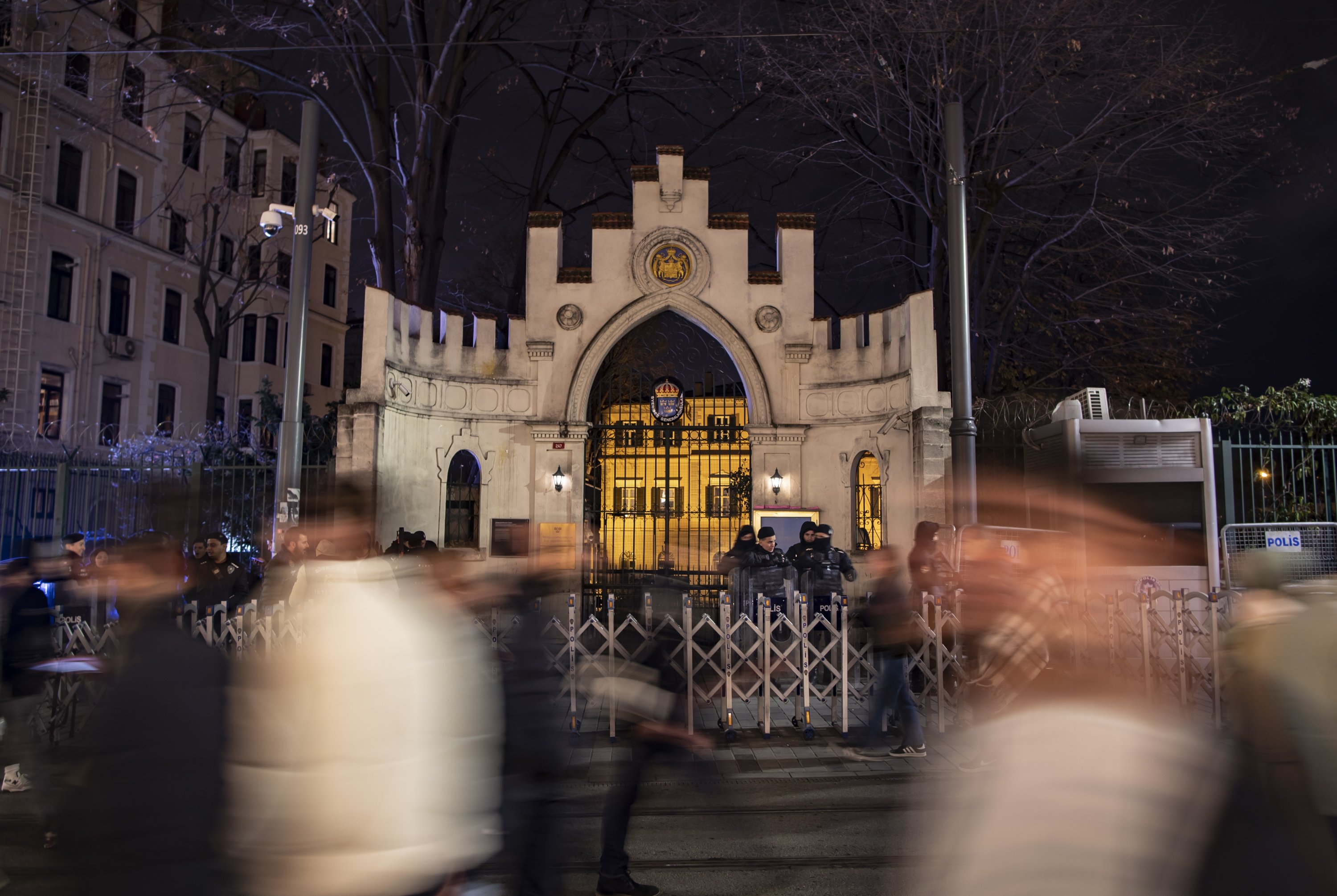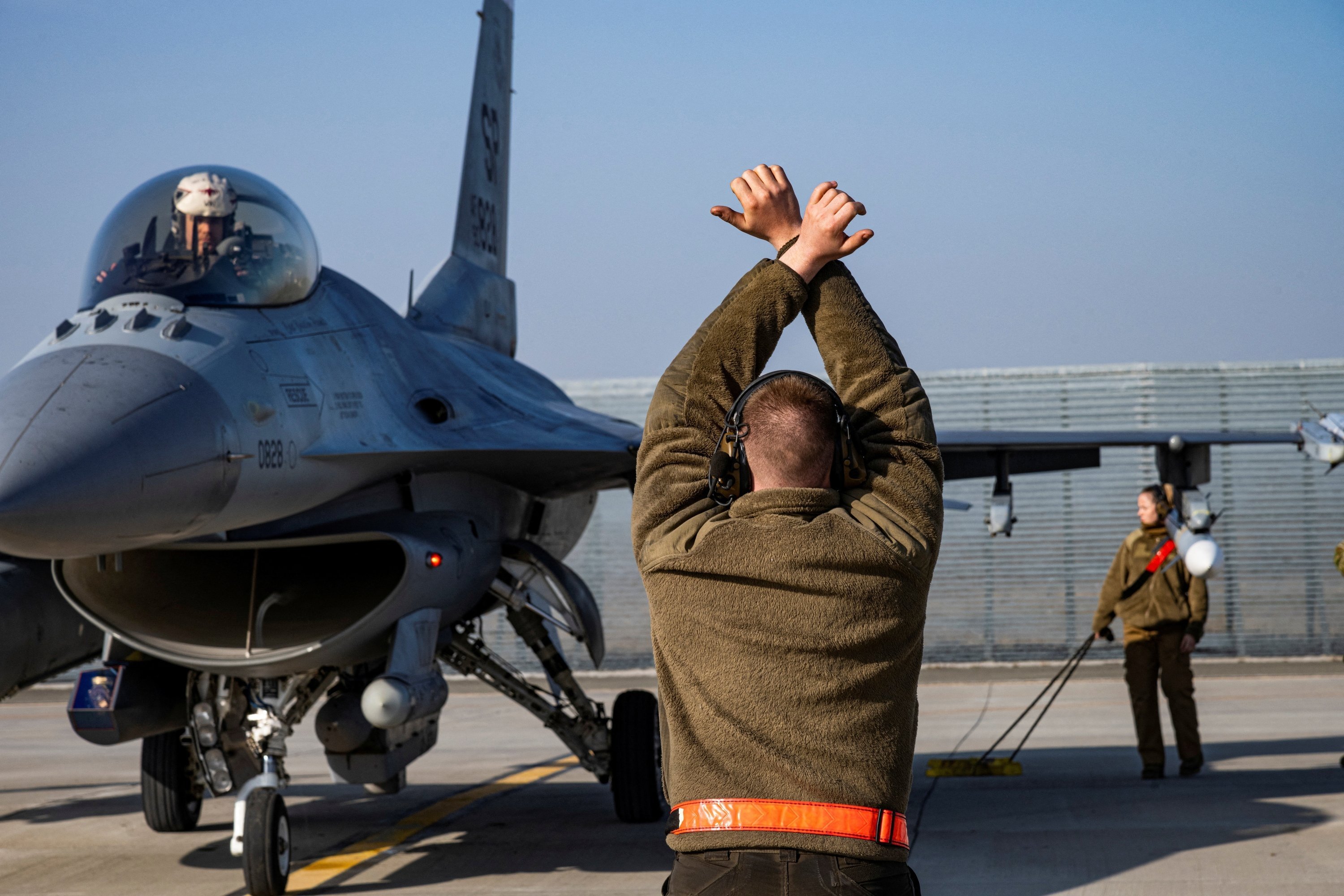© Turkuvaz Haberleşme ve Yayıncılık 2026
There is a growing indication that the intensifying quarrel between Türkiye and Sweden over the latter’s admission into the North Atlantic Treaty Organization is covering deeper concerns Ankara has regarding its fellow NATO members, according to multiple experts.
“NATO is a security organization and candidate members must prioritize Türkiye’s security concerns because it is an obligation,” asserted professor Oğuz Çelikkol, an academic who previously served as Türkiye’s consul-general to Los Angeles, as well as ambassador to Syria, Greece, Iraq and Israel.
Çelikkol and other experts argue that Ankara, as it has several times expressed, is not fundamentally against NATO enlargement or Sweden’s membership in particular, but its primary plea is for support to its decadeslong struggle against terrorists at home and abroad.
Sitting uneasily next to President Vladimir Putin’s immovable Russia while it wages a nearly yearlong war on its neighbor Ukraine, Sweden and Finland, notorious for their neutrality in almost every major commotion in Europe, have been trying to walk through NATO’s threshold, much to the chagrin of 70-year member Türkiye. But what Stockholm has called “sabotage” and Ankara deemed “provocation” threatens to ban Sweden from the alliance before it can even get in.
Türkiye’s overall relations with NATO highlight a “direct” correlation with its ties to the broader West, as well, especially on the point of terrorism, said Mehmet Özkan, author and a foreign policy expert currently serving in the Joint War Institute and the National Defense University.
“Türkiye is not happy with those Western countries hosting terrorist groups and is trying to raise its voice, concern and objection softly,” he said. “However, its objections and concerns are being ignored as always even though Ankara is seeking a reset with its Western allies.”
In addition to their broad presence across Türkiye, organizations like the PKK, its Syrian affiliate YPG, and the Gülenist Terror Group (FETÖ), which orchestrated the 2016 coup attempt in Türkiye that left 251 dead and 2,734 injured, find a foothold in Europe too.
Ankara has been raising an alarm bell and calling for cooperation to stamp out the threat. Drug trafficking, donations and various shell foundations help the terrorists finance their campaigns and maintain their operations, most of whose target is Türkiye.
Besides the lifting of an arms embargo imposed on Türkiye in response to its 2019 military operation in Syria, which was also aimed at PKK elements in the region, Ankara’s most pressing demand from Sweden and Finland has been a tighter crackdown on these terrorists.
Turkish officials have repeatedly pointed to the trilateral memorandum the sides inked under the watchful eyes of NATO Secretary-General Jen Stoltenberg in Madrid last June as the key to unlocking NATO membership for the Nordic countries.
Immediately after, and ever since, Ankara has warned the process would hit a dead-end if the written commitments weren’t fulfilled and its concerns weren’t assuaged.
Unfortunately for Sweden, Ankara’s initial concerns have not dwindled as three controversial weeks have followed in northwestern Europe where PKK supporters heaved up an effigy of President Recep Tayyip Erdoğan onto a pole before the Stockholm City Hall, and not long after, two far-right politicians, under government authorization and police protection, desecrated Islam’s holy book, the Quran, in Sweden and Denmark, one of which notably occurred in front of the Turkish Embassy in Stockholm.

The Stockholm incident sparked outrage from Türkiye and the broader Muslim world alike but it was the Swedish officials shirking all responsibility and claiming the demonstration was permitted under "freedom of expression" that became the boiling point.
Already disgruntled from continued tolerance for blatant anti-Türkiye demonstrations, Ankara froze all NATO talks, filed a lawsuit, and declared Sweden should seek its support no more.
Swedish Prime Minister Ulf Kristersson sought to smooth the strain, requesting dialogue and claiming there was still "hope" and it was "foreign actors, even state actors, exploiting protests and figures in the country to obstruct" the Nordic country from entering NATO.
Erdoğan, however, extinguished Sweden’s NATO dreams altogether as he vowed Türkiye "will not say 'yes' to your entry into NATO as long as you allow my holy book to be burned and torn, and you do so together with your security forces."
Beyond a mere dissatisfaction at being repeatedly slandered, Ankara’s current attitude with Sweden in particular indicates a deeper resentment toward its NATO allies about its effort to eradicate terrorism, Çelikkol said.
Open support to the PKK, an organization blacklisted as a terrorist formation by the European Union and the United States, the violent clashes with the police in Paris in the wake of a deadly shooting at a Kurdish cultural center, Germany’s consistent tolerance of terrorist sympathizers, the flow of funding the group finds in Europe, all demonstrate this fact, according to Çelikkol.
“There’s a problem in Europe and Türkiye is essentially lamenting this problem,” he underlined.
Another foreign policy expert, professor Mesut Hakkı Caşın, believes Sweden, who claims to have done “everything Türkiye has asked” under the tripartite deal, is trying to turn its accession into a fait accompli in the meantime.
Due to its insistence on sheltering terrorists and letting their sympathizers run free, Sweden is only managing to look like a country that supports terrorism, said Caşın, the deputy chair of the Center for Strategic Research and a member of the Presidential Security and Foreign Policies Council who currently teaches at Yeditepe University.
“Sweden is admitting that Türkiye’s conditions on blocking the PKK’s activities and financial support are unacceptable demands. Meaning, it’s actually Sweden holding back its accession.”
While Stockholm draws the full force of Ankara’s wrath, Finland has been testing the waters with Türkiye about its own NATO chances, now jeopardized for purely being conjoined with Sweden’s.
After its Foreign Minister Pekka Haavisto revealed Finland “might consider” joining NATO without Sweden, Helsinki scrambled to stay in Ankara’s good graces, making “immediate” contact with Erdoğan’s office and kick-starting “preliminary discussions.”
Erdoğan himself has signaled Türkiye is looking positively at Finland’s application.
If Türkiye greenlights Finland’s bid and holds Sweden back, it will be clear that Ankara is not against NATO expansion or considering Russia's warnings, according to professor Özkan who said it will instead mean Ankara is acting “purely in its national interest.”
“Such a move will give a clear message to the West in general and individual countries involved,” Özkan said.
Ankara often receives a lot of censure for its equal distance to the warring sides in the ongoing Russia-Ukraine conflict. Turkish officials are proud of their “policy of balance” and their mediation has worked in bringing Kyiv and Moscow to the same table for high-level talks twice since February 2022, along with resolving a grain crisis through a U.N.-backed initiative unlocking Ukrainian ports.
But Erdoğan’s close relationship with Putin, who maintains his open hostility to NATO expansion and often threatens retaliation, is met with disdain in the West, with some politicians even accusing the Turkish leader of stalling NATO in favor of Russia.
At the same time, professor Özkan suggested, Türkiye knows that the more it delays the process, there is a chance the clock may turn against itself.
“Knowing this, Ankara has positioned itself in a way it’s not delaying any NATO process but the whole thing becomes the fault of countries involved, like Sweden,” Özkan said.
In case Sweden fails to stick to its commitments and the application bounces back from the Turkish Parliament, the balance within NATO should not change, Çelikkol added.
Throughout this quarrel, Ankara has also been accused of purposefully blocking NATO’s enlargement and leveraging its lingering veto to secure an F-16 deal with the United States while its concerns have been mostly overlooked.
Despite consistent statements from the White House about the NATO deal being a solitary business between Türkiye, Sweden and Finland only, a U.S. senator known for his vehement objection to selling fighter jets to Türkiye just this week declared there would be “no F-16s going to Türkiye if Türkiye does not admit Sweden and Finland (to NATO).”
“There may be other issues but that is a certainty,” U.S. Senator Chris Van Hollen said.
“The effort here is to back Türkiye into a corner but the F-16 deal with the U.S. is being used as a tool of blackmail against Türkiye,” countered Caşın.

The F-16 deal is a long controversial issue that comes with several international conflicts, most strikingly between archrivals Türkiye and Greece, who has been spotted lobbying for a ban on the sale.
Çelikkol argued Washington expressed that wasn’t the case on numerous occasions “but if the U.S. really links the two instances, they need to express it clearly because taking their statements seriously is both Sweden and Türkiye’s right.”
Trilateral NATO talks are currently suspended and as it stands, Stockholm and Helsinki believe Ankara will revisit the matter after its much-anticipated elections on May 14, which may or may not see an administrative change. The question, however, remains of whether Sweden is committed to taking the necessary steps to gain Türkiye’s trust and subsequently its NATO membership.
